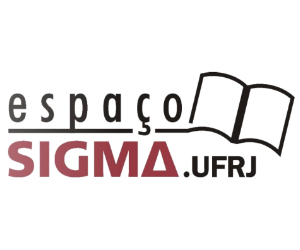Updated on February 5th 2024.
As decided by the PPGHIS Board, the Program must:
I – Support the participation of PPGHIS students, with the exception of doctoral students with a CNPq Scholarship who receive a Material Support fellowship, in academic events outside the State of Rio de Janeiro – national and international events, for which they must present a letter of acceptance, advisor’s support letter and the complete work, as long as there are resources at PPGHIS for this purpose. Once the aid has been received, it is mandatory to present proof of participation in the event.
II – Support PPGHIS students to carry out research in archives outside the State of Rio de Janeiro, as long as the relevance of the collection and research for the completion of the Master’s Dissertation or Doctoral Thesis is proven, and as long as it is not the student’s place of origin.
III – Each student may receive only one aid, in any form, once a year.
Guidelines for granting aid to matriculated students.
A – Activities eligible for support from the Program
- Congresses and academic events outside the State of Rio de Janeiro
- Research trip outside the State of Rio de Janeiro
- Other purposes may be considered, provided they are duly justified.
Note: expenses for activities must occur/have occurred between April 15, 2023 and April 14, 2024.
B – Documents required for application
Applicants should be aware that even if incomplete applications are approved by the Finance Committee, funding will only be granted when the documentation is complete.
B.1 – Participation in event:
- request for assistance with justification,
- letter from the advisor attesting to the importance of the student’s participation in that event,
- summary of the text or presentation,
- letter of acceptance from the event organizers OR certificate of participation. If the acceptance letter is not available at the time of submitting the application, the candidate must make this explicit and explain the reason.
B.2 – Field research trip:
- request for assistance with justification,
- letter from the advisor attesting the relevance of the research and collection to ongoing research,
- work plan (with estimated dates for carrying out the research),
- proof of expenses (if the research trip has already been carried out) OR expense budget.
C – Who is eligible for aid
- Students with or without fellowships may apply, with priority being given to the latter. Students who receive a CNPq material support grant may not apply. Students who received aid in the call made on August 3, 2023 (that is, in the call immediately prior to this) will not be considered for this call.
- Support will be given preferentially to students who pass the Qualification Exam. Exceptions must be justified in the advisor’s letter.
- Each master’s or doctoral student may receive this aid/support once per calendar year, as long as there are resources at PPGHIS for this purpose.
D – Activities Report
- If the request is for an event that has yet to take place, after its completion, students benefiting from the aid must present a report of the activity, with proof (certificate of participation, expense receipts, ticket stubs).
- Students who do not submit the relevant report become ineligible for future assistance from the Program.
E – Submission of the student aid request
- Requests must be sent to the coordination, by email at ppghis.ufrj@gmail.com, with the documentation indicated above attached.
- The evaluation/classification of requests will be carried out by the Finance Committee, without the possibility of appeal.
- The total for student aid in the February 2024 call is R$500.00, depending on the availibility of resources, for a total of up to 8 (eight) grants.
- Applications must necessarily be submitted by March 10, 2024.
- The Finance Committee will evaluate the applications and announce its decision on this website by March 30, 2024.
- The distribution of aid will be carried out by the Coordination, upon presentation of complete documentation, as explained above, and signature of an appropriate receipt.
General Provisions:
- The Finance Committee, together with the coordination, will evaluate cases not covered by these rules.
- Students must acknowledge the support received by the Program in the appropriate spaces.
- The granting of any support indicated above will always be subject to the availability of PPGHIS resources.
- The amount for this aid is decided by the Finance Committee and the coordination for each call and may be different for master’s and doctoral students.








